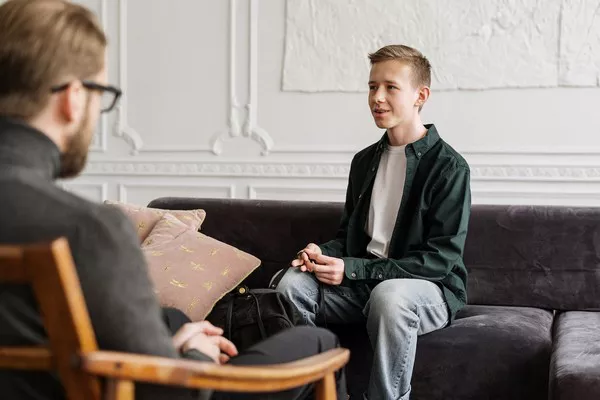Social anxiety disorder (SAD), also known as social phobia, is a type of anxiety disorder characterized by excessive fear or anxiety in social situations. For some individuals, this fear can be so intense that it interferes with daily functioning and quality of life. In this article, we’ll explore what severe social anxiety is, its symptoms, causes, and available treatment options.
Part 1: Symptoms of Severe Social Anxiety
The symptoms of severe social anxiety can vary from person to person but may include:
- Fear of being judged or evaluated by others
- Feeling like others are scrutinizing your every move
- Worrying about saying or doing something embarrassing
- Avoidance of social situations
- Avoiding events or situations where you might be the center of attention
- Avoiding situations where you might have to interact with strangers
- Physical symptoms
- Sweating, trembling, or shaking
- Racing heartbeat or palpitations
- Nausea or stomach upset
- Shortness of breath or difficulty breathing
Part 2: Causes of Severe Social Anxiety
While the exact causes of severe social anxiety are not fully understood, several factors may contribute to its development, including:
- Genetics
- Individuals with a family history of anxiety disorders may be more susceptible to developing social anxiety.
- Brain chemistry
- Imbalances in neurotransmitters, such as serotonin and dopamine, which regulate mood and emotions, may play a role in social anxiety.
- Environmental factors
- Traumatic experiences, such as bullying or abuse, may increase the likelihood of developing social anxiety.
Part 3: Treatment Options for Severe Social Anxiety
Fortunately, severe social anxiety is treatable through a variety of approaches, including:
- Therapy
- Cognitive-behavioral therapy (CBT) is often used to treat social anxiety.
- Exposure therapy, which involves gradually exposing the individual to feared social situations, can also be effective.
- Medication
- Antidepressants and anti-anxiety medications may be prescribed to help manage symptoms of severe social anxiety.
- Lifestyle changes
- Engaging in regular exercise, practicing stress-management techniques like yoga or meditation, and avoiding substances like caffeine and alcohol may all help alleviate symptoms of social anxiety.
Part 4: Coping Strategies for Severe Social Anxiety
In addition to seeking professional treatment, there are several coping strategies that individuals with severe social anxiety can use to manage their symptoms, including:
- Practicing self-compassion
- Being kind and understanding to yourself can help reduce feelings of shame and self-criticism.
- Seeking support from loved ones
- Talking to friends and family members about your experiences can provide emotional support and validation.
- Gradual exposure to feared social situations
- Slowly exposing yourself to feared social situations can help desensitize you to them over time.
Conclusion:
It is important to note that for some individuals, severe social anxiety may co-occur with other mental health conditions, such as depression or obsessive-compulsive disorder. In these cases, a comprehensive treatment plan that addresses all underlying conditions may be necessary. In addition to seeking professional treatment and practicing coping strategies, it can also be helpful to educate oneself about social anxiety. The more one understands about the condition, the better equipped they are to manage their symptoms and seek appropriate treatment.
Finally, it is important to remember that recovery from severe social anxiety is a process and may take time. It is okay to take things at one’s own pace and to celebrate even small victories along the way. With the right support, resources, and dedication, individuals with severe social anxiety can learn to live fulfilling, anxiety-free lives.
In conclusion, severe social anxiety is a real and often debilitating condition that affects millions of people worldwide. Fortunately, effective treatment options are available, including therapy, medication, lifestyle changes, and coping strategies. By seeking help and addressing their symptoms, individuals with severe social anxiety can overcome their fears and reclaim their lives.
Related Topics:





























